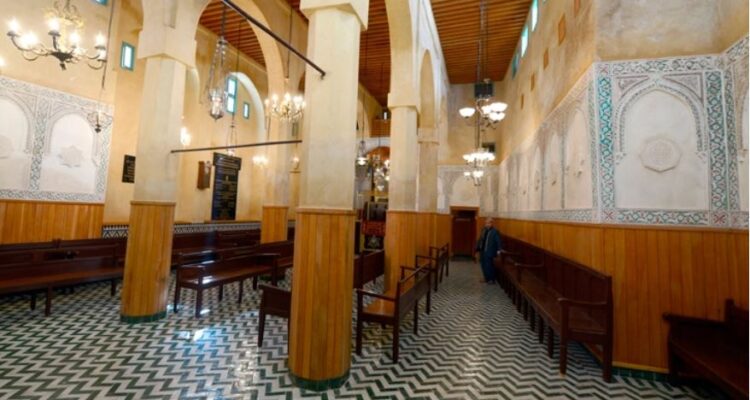‘I will call this a KKK meeting’, he announced, triumphantly. Perhaps seeing my bewilderment, my garrulous Moroccan host pointed to wall-hangings of verses from the Koran, the kippa (skull cap) on my head and the cous-cous (kous-kous?) on the table. ‘This is real dialogue – a KKK moment’, he chortled. I don’t know how Klansmen would have assessed our meeting, or the enthusiasm for Morocco to develop both diplomatic ties and an open, overt economic and political relationship with Israel. Or the Muslims and Jews collaborating, in Rabat, Morocco’s capital. But from the response my host received to a Facebook posting of our late afternoon lunch, many Moroccans seemed to approve. Although Morocco had once been home to hundreds of thousands of Jewish people, our host told me his mother, who refused to leave the kitchen while I was in the house, had never before met a Jew. Generously, she acknowledged that we appeared to be no different to any other humans.
Marrakech is, to quote my travelling companion, ridiculously photogenic. The lovely market square, the historic ruins, the gardens, museums and street scenes are a visual delight. Even the large, old Jewish cemetery was clean, well-maintained and, apparently, received regular visitors. When there, we were given a map dotted with symbols telling us where synagogues once stood, and directed to the pretty Jewish centre which serves the tiny remainder of the community and the steady tourist trade. I was interested in visiting Muslim religious sites too, but was told by our French expatriate hostess that only Muslims where allowed in that city’s mosques.
Read the article by Jeremy Jones in The Spectator.

